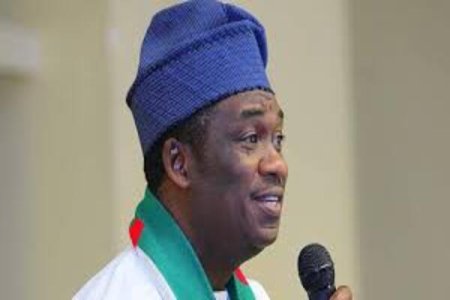
Lagos Deputy Governor, Obafemi Hamzat, has raised alarm over shocking electricity bill hikes, with his official residence's bill jumping from N2.7 million to N29 million in just one month. Despite switching to a prepaid meter, he struggles with overbilling, a problem plaguing many Lagosians. He calls for immediate reforms.
Lagos State Deputy Governor, Obafemi Hamzat, has raised serious concerns over the increasing electricity bills charged by power distribution companies, revealing a shocking spike in the bill for his official residence. Speaking at a roundtable event in Victoria Island, Hamzat shared that his electricity bill surged from N2.7 million in March to an eye-watering N29 million in April. Despite opting for a prepaid meter to avoid estimated billing, the deputy governor stated that his efforts to switch to metered billing have faced numerous challenges, especially with Eko DisCo, the electricity company in charge.
Hamzat's comments reflect a broader problem faced by many residents across Lagos who have been subjected to inflated electricity bills under the estimated billing system. He recounted a particularly troubling case of a resident in Surulere's Coker Aguda area, who received a N2.8 million electricity bill, a figure that surpassed his entire annual rent.
At the same event, Hamzat also represented Governor Babajide Sanwo-Olu in signing a Memorandum of Understanding between the Lagos State Government and the Rural Electrification Agency (REA) to enhance electricity access to underserved rural communities in Lagos. While commending the partnership, he underscored that the agreement could serve as a crucial step toward stabilizing the electricity supply in the state and mitigating some of the billing crises currently afflicting residents.
The Deputy Governor’s frustrations are shared by many Lagosians who continue to experience the harsh realities of erratic billing practices by electricity distribution companies. His call for a more equitable solution comes at a time when residents are grappling with financial hardships exacerbated by these unsustainable charges.


![[VIDEO] Libya Returnee Breaks Down After Losing Life Savings to CBEX Scam](/data/attachments/215/215525-2431a1a1f7b294990de137bf24cc9d3d.jpg?hash=pKy-TrUcTC)
